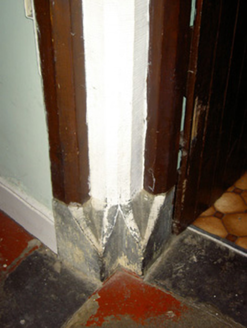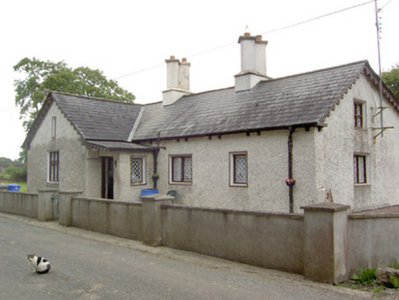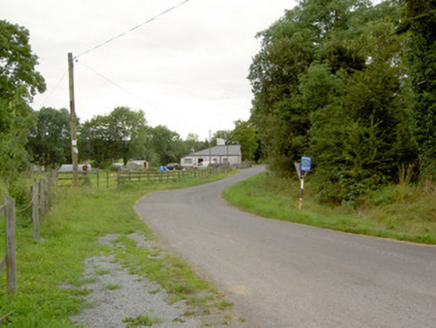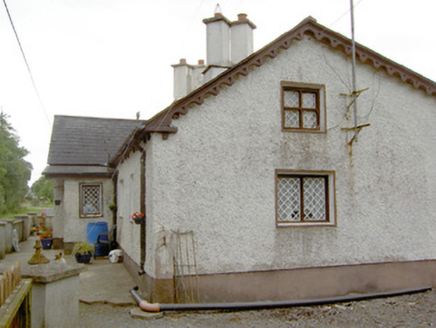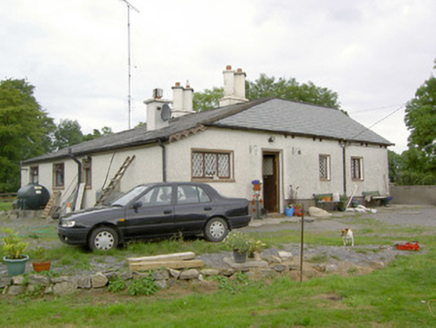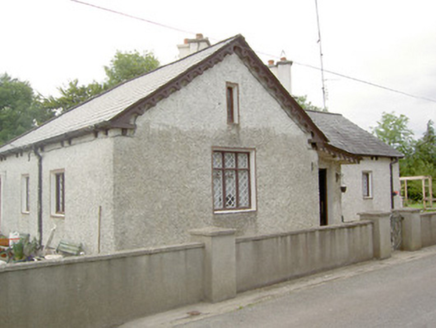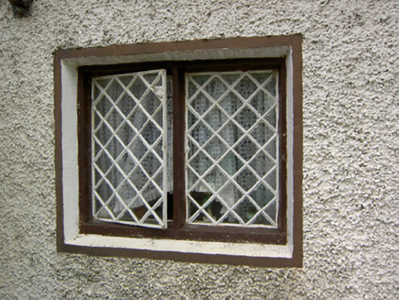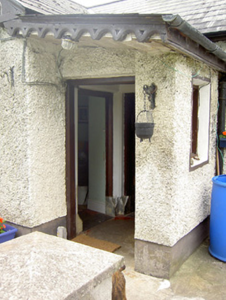Survey Data
Reg No
13313020
Rating
Regional
Categories of Special Interest
Architectural, Artistic
Original Use
Gate lodge
In Use As
House
Date
1820 - 1840
Coordinates
211398, 263496
Date Recorded
07/08/2005
Date Updated
--/--/--
Description
Detached four-bay single-storey with attic level Tudor-Revival style former gate lodge on L-shaped plan, built c. 1830, having gable-fronted end bay to the south end of the main elevation (east), lean-to porch on corner of ‘L’ and single-storey extension to rear (west). Now in use as private house. Pitched artificial slate roof with clustered diagonal-set rendered chimneystacks and decorative timber bargeboards. Pebbledashed walls over smooth rendered plinth. Square-headed window openings with timber framed leaded casement windows. Square-headed door opening with timber battened door to porch, timber battened door with carved limestone detailing to door surround to interior of porch. Set adjacent to road to the south of the site of Mosstown House (demolished) and to the west of Keenagh. Rendered boundary wall to road frontage (east).
Appraisal
An attractive Tudor-Revival style former gate lodge, which retains distinctive features including original timber framed leaded glass windows, decorative timber bargeboards and carved limestone detailing to the interior of the porch. The latter may indicate that the porch is a later addition, the carved detailing originally visible to the exterior. The diagonally-set Tudoresque chimneystacks create an interesting roof profile. This former gate lodge is one of the few surviving demesne structures on the former Mosstown estate. Mosstown House was the seat of Viscount Newcomen in the late-seventeenth century and was subsequently the home of the Kingston family (home of Alexander Kingston by 1791). It later passed, by inheritance, into the ownership of the Murray family (c. 1914). The house was later demolished c. 1962 and is a sad loss to the architectural heritage of County Longford. According to local sources, this building also functioned as a laundry serving Mosstown House. The remaining demesne structures form an interesting group in the landscape and are an important part of the social and architectural heritage of the area. This building adds to the historic feel of the Keenagh area and is an attractive feature in the rural landscape to the west of the village.
